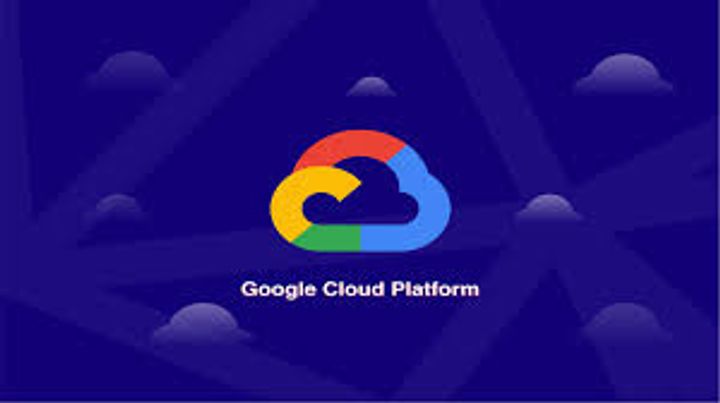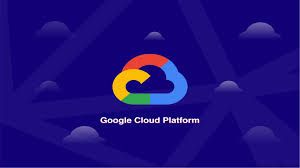
Google Cloud: A Comprehensive Guide
Google Cloud is a suite of cloud computing services offered by Google. It includes everything from data storage, machine learning tools, and web hosting, to enterprise-grade solutions like virtual machines and container management.
The platform was launched in 2008 and has since evolved in one of the leading cloud service providers with Amazon Web Services (AWS) and Microsoft Azure. Google Cloud provides both infrastructure as a service (IAAS) and platform such as a PAAS model, so that companies and developers can effectively produce, distribute and manage.

Its existence stems from the growing need for scalable computing resources, better data management, and the rise of digital transformation across industries. Companies now need cloud-based tools to store large volumes of data, run applications remotely, and ensure business continuity across global operations.
Why does Google Cloud mean something today
Cloud computing is a basic technique in today's digital scenario. Google Cloud is especially important because:
-
It supports organizations in increasing operations without the need to invest in physical servers.
-
This external work provides the opportunity for infrastructure, enables employees to work together anywhere.
-
It strengthens developers with AI and machine learning skills.
-
It provides safe storage for sensitive data with the clutching of corporate class.
-
It supports areas such as health care, education, economics and authorities with industry-specific solutions.
Who benefits from Google Cloud?
-
Small businesses in search of cheap hosting and equipment
-
Large companies managing complex applications and data infrastructure
-
Goal start-up for quick scalability
-
Educational Institute running online learning platforms
-
Developers and computer scientists used advanced equipment such as Tensorflow and Bigkwear
Problems Google Cloud helps solve
-
High IT infrastructure costs
-
Data security concerns
-
Scalability limitations
-
Disruptions in business continuity
-
Slow deployment of software solutions
Legal framework and policy effect
The use and management of Google Cloud is influenced by a series of national and international regulations, depending on where the service is used.
Large guidelines affecting Google Cloud:
-
General data protection regulation (GDPR) in the EU – requires transparent handling of personal data.
-
U.S. Cloud Act – U.S. Including Google Cloud Server controls access to shooting data stored in the system.
-
Indonesia's data sovereignty law (UU PDP 2022) – requires some data stored in local servers; Relevant to businesses working in Indonesia.
-
India's Digital Personal Data Protection Act (2023) – This explains how cloud suppliers handle Indian users.
-
Google Cloud Compliance Program – Include Certificates for regulated industries such as ISO/IEC 27001, HIPAA and Fatherlamp.
In countries such as Singapore, Germany and Brazil, government programs also encourage digital changes by offering encouragement to use clouds, which often involve the use of platforms such as Google Cloud.
Accessories and resources
Whether you are a business, student or developer, Google Cloud offers a series of many tools and support platforms to help you start and score your work effectively.
Equipment provided by Google Cloud:
-
Google Cloud Console – Web-based dashboards to manage your services, billing and API.
-
BigQuery – a server-free data warehouse to analyze a large-scale dataset using SQL.
-
Cloud Run – allows you to quickly distribute contained apps without server administration.
-
Vertex AI – a platform for manufacturing and scaling of machine learning models.
-
Lucar Studio – Data is used for visualization and reporting on business intelligence.
Other valuable resources:
-
Google Cloud Skills Boost – provides free and paid training paths and certificates.
-
Price calculator – helps to estimate the sky cost based on your use.
-
Cloud Marketplace – III-Party apps and services integrated with Google Cloud.
-
Community and Support Forum – for troubleshooting, shared templates and questions and answers.
Free access is available to new users, including $300 in recognized credit for 90 days and always includes free products such as Compute Engine and Sky storage under specific restrictions.
Frequently asked questions (common questions)
What is the Google Cloud used for?
Google Cloud is used to host websites and applications, store data, analyze large data sets, develop machine learning models and cloud management management.
Is Google free to use Sky?
Google Cloud provides a free level of limited access to products, and $300 in free credit for new 90 days users. In addition, users pay based on use.
How is Google Cloud different from Google Drive?
Google is a comprehensive cloud computing platform for cloud developers and businesses, while Google Drive is a filling service mainly used by individuals for individual and collaborative file collection.
Can I use Google Cloud without coding skills?
Yes, many Google Cloud services such as Lukar Studio, Cloud Console and Ai Tool in Google Work are designed for non-decks with graphic interfaces and templates.
Is my data safe on Google Cloud?
Google Cloud and-end encryption use multifactor authentication and comply with global data security standards. Users are also encouraged to follow best practices for data security and identification management.
Summary
Google Cloud develops as a central platform for companies, developers and organizations that require flexible, safe and scalable data services. Its wide range, global appearance, AI skills and compliance support make it a strong choice for 2025 and beyond cloud solutions.
Whether you start now or want to scale a large operation, Google provides an accessible and powerful basis for creating a cloud.










